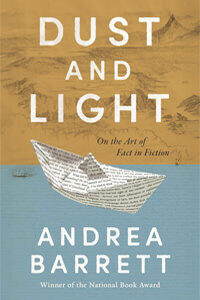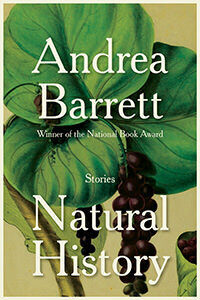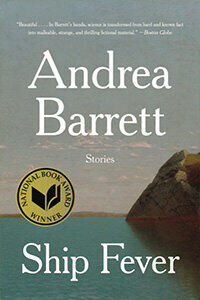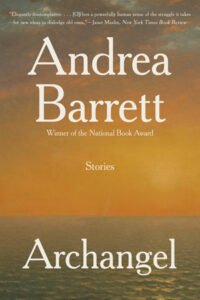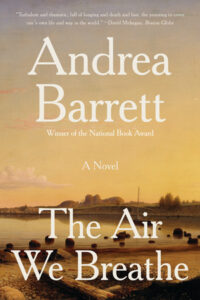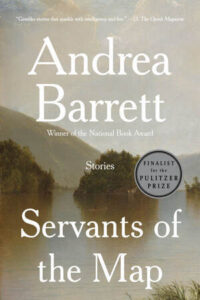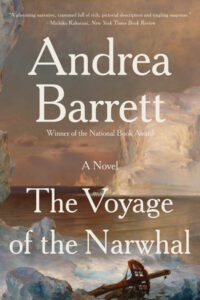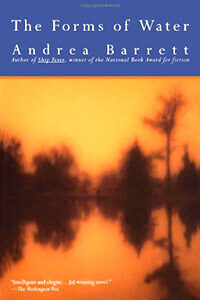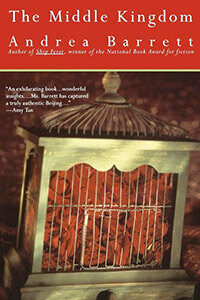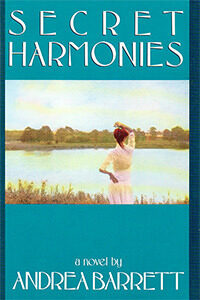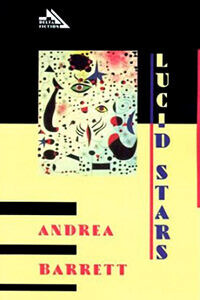Interviews
Videos
“One of the things [the stories in Archangel] seemed to to me to have in common was that sense [of] the great passion and love we can have for a theory that will turn out to be completely wrong – we can’t know that when we’re working on something, we love a wrong theory the way we love a right theory; it’s history that makes that judgment. But the people who have spent their whole life working so hard on something that turned out not to turn out well, that’s a difficult path.”
“Here at last, I thought, was a meditation from one of its leading practitioners on this peculiar species of fiction set in the past that has never sat very comfortably under the label ‘historical fiction.’ How does Barrett create characters who ‘live in history’ rather than stand before it as a backdrop? In the seven essays that make up Dust and Light, the writer discusses the differences between history, biography, and what she calls ‘literary historical fiction,’ as well as the ways her own work differs from what might be considered its more ‘commercial’ counterparts.”
—Alix Christie, from her introduction to the interview.
“Any kind of serious work is full of drama and passion, yearning and disappointment, complicated choices, sacrifices, moments of bliss — and science is serious, wonderful work.”
“It’s typical for me to be delving into several apparently unrelated areas at once; our lives and our interests aren’t divided into the categories of academia or card-catalogs and so I try not to let my characters’ interests be shoe-horned into those boxes either.”
“Teaching stories, later on, made me realize that actually the stories I liked best, and wanted to write, were ones that did nearly as much as a novel but in a smaller space.”
“What it feels like is that slowly, over time — a bit more with each book — I trusted my ability to bring alive characters from other times and places, who were interested and involved in things beyond the narrow confines of my life experience.”
“Scientific questions are very precise and very directed. A scientist poses problems that can be answered if one works hard enough.” In contrast, writers ”pose question after question, and none of them get answered,” she continued, adding, ”A lot of what I write about in science and history serves as a metaphor for the discoveries we make as writers.”
Audio / Podcasts
“On Meaning and Time: Andrea Barrett on What the Past Tells Us About Today. In Conversation with Whitney Terrell and V.V. Ganeshananthan”
“[What starts me writing a story] is not an idea—what is the ether of space?—it’s an image related to that idea. So it’s an image of, in this case, these gigantic, whirling machines made of iron that Sir Oliver Lodge used… It’s jellyfish pulsing in the ocean, and a line drawing of a gigantic jellyfish from the 1870s. That image leads me into the idea, and those two things together lead me to the characters in a story.”
“That idea of – what is evidence, how much evidence or data do you need to convince someone of a politically difficult or emotionally difficult position, that’s what really fascinates me, and I think that’s what drove some of the stories in [Archangel].”
“And because nobody was watching and there was no risk involved, what I chose to write about was the thing I actually loved the most but had never dared to write fiction about before, because who writes fiction about old dead scientists?”
“Infectious disease exists at this intersection between real science, medicine, public health, social policy, and human conflict. There’s a tendency of people to try and make a group out of those who have the disease. It makes people who don’t have the disease feel safer. So I think it’s that moment that really interests me.”
